Sarah Forbes Bonetta- The Yoruba Slave Who Became Queen Victoria’s Goddaughter
Sarah Forbes Bonetta was originally born ‘Aina’ in 1843 to Egbado parents of the Yoruba ethnic group.
Her father was the high chief of Oke-Odan, an Egbado village in western Nigeria, till he was killed in 1848 when King Gezo of Dahomey, one of the notorious slave raiders in the 19th century, raided his village. Sarah’s parents and siblings whose names are unknown were killed in the raid which turned Sarah, an Egbado princess, into a slave.
Many of the villagers captured during the raid were made slaves and sacrificed to the gods of Dahomey but fortunately for Sarah, she was saved by the quick intervention of Captain Frederick E. Forbes, a British naval officer who was on a visit to Dahomey kingdom to persuade King Gezo to abolish slave trade.
Captain Frederick E. Forbes persuaded King Gezo to present Sarah (then Aina) as a gift to Queen Victoria, he said: “She would be a present from the King of the Blacks to the Queen of the Whites.” King Gezo agreed and thus Sarah’s life was spared and subsequently she was named Sarah, Forbes, the captain’s surname and Bonetta which was the name of his ship (HMS Bonetta).
On the 9th of November, 1850, Captain Frederick Forbes took Sarah to Great Britain to meet Queen Victoria at Windsor castle. The Queen admired Sarah’s intelligence and ability to learn quickly.
Even Captain Frederick wrote: “She is a perfect genius; she now speaks English well, and has great talent for music… She is far in advance of any white child of her age in aptness of learning, and strength of mind and affection…” Shortly after, Captain Frederick Forbes died and so Sarah was sent to the Schoen family in Palm Cottage, Gillingham. Queen Victoria adopted Sarah as her goddaughter and sponsored her education.
Being the Queen’s goddaughter, Sarah had unlimited access to Windsor castle like other members of the royal family. Shortly after Sarah began to live with the Schoen family, she developed a health problem due to the damp weather of Britain.
Queen Victoria arranged for her migration to Sierra Leone to continue her education at the Female Institution, a CMS school in Freetown where she excelled in music and her academics. In 1855, Sarah returned to Great Britain.

In January 1862, Sarah Forbes Bonetta, now 19 years old, attended the wedding of the Queen’s eldest child, Princess Royal Victoria, as a guest.
Seven months later, she was offered a marriage to Captain James Labulo Davies, a 31-year-old wealthy Yoruba businessman who lives in Britain. Sarah was reluctant to accept the offer due to reasons known to her but she eventually accepted after much persuasion.
The wedding took place in August 1862 at the St. Nicholas Church in Brighton, England. It was such an extravagant one; dignitaries from different parts of the world were in attendance.

The new couple moved back to Africa and settled in the town of Badagary in Lagos, Nigeria. Shortly after her marriage, Sarah Forbes Davies had her first daughter and requested for permission from Queen Victoria to name her Victoria.
The Queen granted the permission and also adopted baby Victoria as her goddaughter. In 1867, Sarah and her daughter visited the Queen then returned to Lagos where she had two more children named Arthur and Stella. Sarah was diagonised with tuberculosis and later died on August 15, 1880 at the age of 37. She was buried in Funchal, Madiera Island, Portugal.
It was such a sad moment for her family. Queen Victoria wrote in her diary, “Saw poor Victoria Davies, my black godchild, who learnt this morning of the death of her dear mother”. Queen Victoria took good care of Sarah’s children and maintained close contact with them.

Till today, the decendants of James Labulo Davies and Sarah Forbes Bonetta Davies lived in England, Sierra Leone and Lagos, Nigeria.
Thanks for reading,
oldnaija.com
References:
- At Her Majesty’s Request: An African Princess in Victorian England; Mayers, Walter Dean; Scholastic Press; New York; 1999
- The Egba-Dahomey War (1851-1864); Teslim O Omipidan; OldNaija.com
- Forbes, Frederick E.Dahomey And the Dahomans: Being the Journals of Two Missions to the King of Dahomey, And Residence At His Capital, In the Year 1849 And 1850. London: Longman, Brown, Green, and Longmans, 1851
Questions? Advert? Click here to email us.



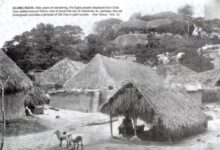

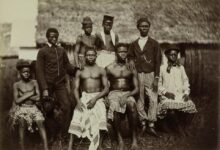
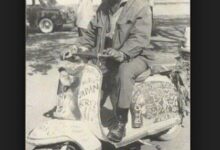
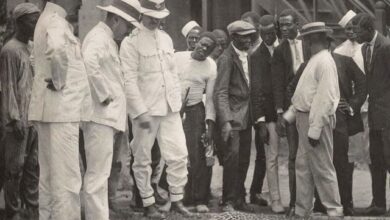
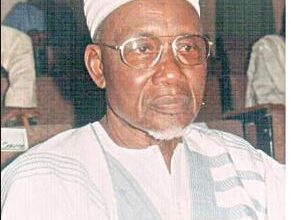


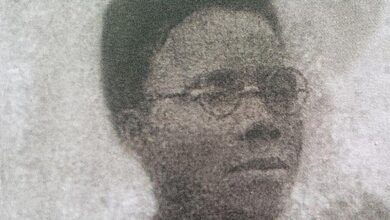
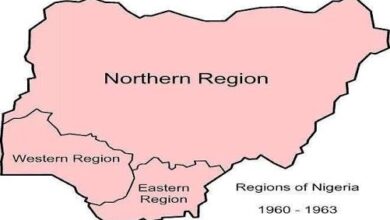

Reblogged this on emotanafricana.com and commented:
Thanks, Ope, for this wonderful retrieval of an interedting archival story.
TOLA.
It’s my pleasure and thanks for reblogging ma. I’m really honoured. Agba yin a d’ale.
A wonderful look into history. Would be interesting to know about Aina’s descendants as she must have those genes of quick mind, et cetera along to some of her descendants.
Thanks for sharing.
TOLA.
Thanks for visiting and reading, Mrs Tola. It really would be interesting. One of her descendants named Davies Oluwaseun Harrison commented below. I wish I can know him better.
Wow…. This is great. I didn’t know this until now. Thanks for sharing Mr. Opemipo.
It’s my pleasure, Mr. Rotimi. I’m glad you now know the story. Thanks for always stopping by. I’m honoured.
You’re gladly welcome.
Uhmmmm!
Am really short of words for this mystery and depth of my family root. I can’t thank you enough for this great exposition and detail explanation with dates.
God bless you,
It’s an honour to have you here, Mr. Davies Oluwaseun Harrison and its my pleasure doing this. You’re from a wonderful and iconic family. Please do visit again.
Soon, lecturers and teachers will be directing students and all types of learners to your site. It’s going to serve as a very powerful instrument to success in some subjects. Well doing and keep moving on without looking back. Do keep on blogging and succeeding!
Thank you for your kind words, Mr. Peter Adewunmi. They are really encouraging. Thanks for visiting too. Have a wonderful evening.
Congratulations!
I have nominated your blog for the Real Neat Blog Award.
More about this nomination is at
https://dearkitty1.wordpress.com/2017/11/06/real-neat-blog-award-congratulations-to-my-thirteen-nominees/
Well done Akewi. What I love about your write ups besides the fact they promot black culture ad history is the attention to detail and your references. Well done????
Thanks for always being there ma. I’m really honoured and grateful.
Thanks for this piece, its amazing to me for slaves to trace back their origin back to their various clans.
It’s our pleasure sir. Thanks for visiting, Mr. Yinka Fahts. Kindly do check back